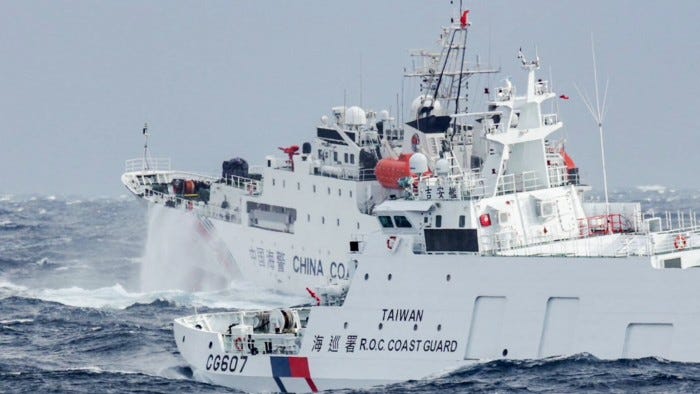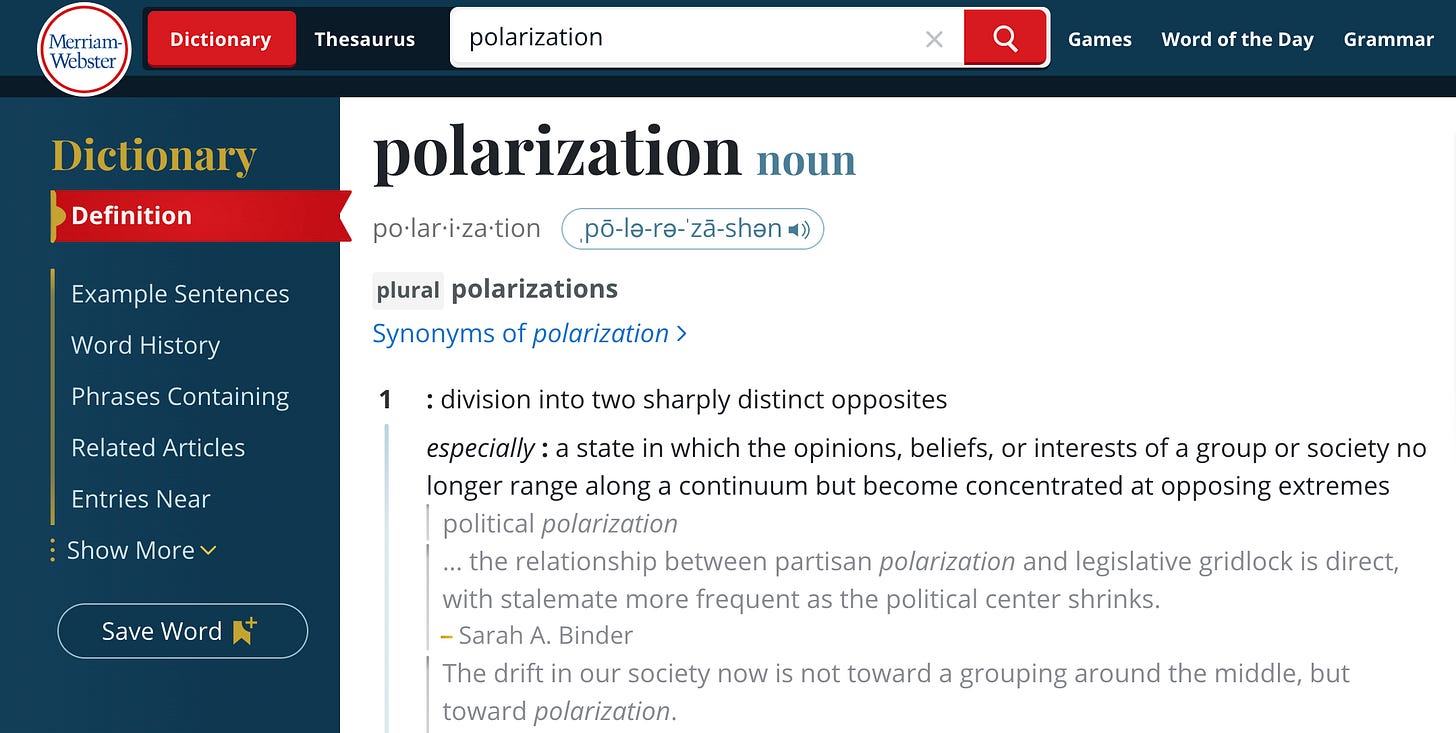Notes from the edge of civilization: December 15, 2024
Europe prepares for war; some world leaders begin packing their bags; Taiwan on high alert; 2025 looking like a roller coaster ride.
It’s that time of year — when we look back at the mess that was 2024… and brace ourselves for whatever fresh disasters 2025 might bring. In Europe, the trend isn’t subtle: war drums are beating louder. NATO’s Secretary General and former Dutch Prime Minister, Mark Rutte, suggested a "wartime mindset" and called for ramping up defense spending.
Speaking in Brussels this week at an event entitled "To Prevent War, NATO Must Dial Up its Defenses," hosted by the Carnegie Endowment for International Peace, Rutte predicted that people across Europe would readily accept a cut in spending on pensions, social security, and health because, “when it comes to it, parents and grandparents will always choose for the future of their children and making sure that they will make the necessary sacrifices.” Nothing says “Merry Christmas” like austerity for the sake of the next generation’s cannon fodder.
To quote George Orwell, “War is Peace.”
Sweden has already mailed out crisis pamphlets instructing people to stockpile canned goods, prepare for power outages, and maybe, if you’re lucky, keep calm and carry on. As we reported in Collapse Life this week:
In Sweden, millions of households recently received a government-issued pamphlet entitled: "In Case of Crisis or War." The practical guide to surviving emergencies contains advice on everything from stockpiling long-life foods to preparing for a week without power.
The information booklet is part of a long-standing tradition in Nordic countries where citizens are encouraged to take collective responsibility for readiness. Finland, Norway, and Denmark have similar campaigns, which effectively normalize preparedness as a civic duty.
Meanwhile, in the USA, anyone who preps in anticipation of a week without power gets labeled a doomsday lunatic. Funny how that works.
As the world slow marches itself to a war (or wars!) no one wants, the political turmoil continues to heat up. Leaders are dropping like flies, so it’s worth recapping.
In Germany, Olaf Scholz will likely be on his way out after snap elections coming up in February. Scholz's center-left Social Democrats formed a coalition with the Green party and the pro-business Free Democrats (FDP) after elections in 2021. The FDP, representing just 11% of voters, frequently clashed with Scholz, particularly over the 2025 budget. Last month, Scholz dismissed FDP leader Christian Lindner as finance minister, prompting the FDP to withdraw from the coalition. This left Scholz and the Greens as a minority government — an uncommon and frowned-upon situation in German politics. Coalition collapses have occurred only five times since 1949.
France faces deep political uncertainty after President Emmanuel Macron’s coalition government fell due to a no-confidence vote two weeks ago over a divisive €60 billion austerity budget. The vote, supported by Marine Le Pen’s far-right National Rally, marked the first successful no-confidence motion since 1962. France now faces investor anxiety as it ends the year without a stable government or a 2025 budget, with borrowing costs briefly surpassing Greece's. Strikes are already choking public services, and without the necessarily certainty of a fiscal roadmap, things are looking… how you say, très chaotic?
Meanwhile, South Korea’s parliament has impeached President Yoon Suk Yeol, suspending him from power in an extraordinary turn of events. The impeachment came after Yoon’s own ruling party turned against him following his controversial and short-lived attempt to impose martial law. This marks the second time in less than a decade that a South Korean president has faced impeachment while in office.
Justin Trudeau, recently called "an insufferable tool" by Elon Musk, has vowed to lead Canada’s Liberal Party into the next federal election, despite more than 20 Liberal lawmakers urging him to step down. They cited concerns about his leadership amid slipping poll numbers and recent electoral upsets in traditional Liberal strongholds. Trudeau insists he’s still the man for the job, even as his approval ratings tank and the Liberals trail the Conservatives in polls. Canadians might beg to differ, but thanks to party rules that protect sitting prime ministers from challenges, Trudeau’s sticking around whether they like it or not.
Of course, there is Syria’s Bashar al-Assad, whose overnight ouster was a rather interesting example of the odd undercurrents at play right now. The situation is both complex and fluid, with the potential for sectarian violence to escalate and an odd partitioning of the lands to occur. For all its faults, Syria was a handy buffer between Turkey and Israel and that may now disappear. But lots of other things could go wrong. Stay vigilant.
This week, Taiwan went on high alert in response to what it described as the largest naval buildup in three decades in surrounding seas, including the East and South China Seas.
Breaking from past practices, China’s military remained silent during the exercises, only addressing them days later with a cryptic statement quoting Sun Tzu’s Art of War: “Just as water retains no constant shape, so in warfare there are no constant conditions.”
This marked a shift from its typical propaganda blitz accompanying military drills. Translation: Beijing wants to normalize its military presence around Taiwan and remind the US it can act whenever it feels like it.
Finally, as we sift through the smoldering remains of 2024’s wrecked fuselage, Merriam-Webster’s Word of the Year — polarization — feels like a tired punchline. Defined as “division into two sharply distinct opposites,” it’s exactly what elites and media want us to believe defines us.
As we wrote earlier this week, the reality is simpler: most of us agree on the basics. We want affordable lives, decent schools, and a fair shot for our kids. The November elections showed people rejecting the nonsense and speaking out against a system rigged to benefit the powerful.
The fear-mongering about polarization is a smokescreen to keep us distracted and divided, because a united population is the one thing they can’t control. The cracks in the narrative are showing, and the light’s breaking through.
Let’s make 2025 the year we flip the script. The real divide isn’t between us — it’s between the people and a system desperate to keep us apart.
(We’re testing out a new AI technology that turns our blog posts into brief summary videos to see if there will be any impact on our YouTube analytics. As you may or may not know, YouTube doesn’t like us. We’d be grateful to know your thoughts. Oh, and share our channel, please! We’re at almost 1000 subscribers on YouTube.)






Be sure to like the video by hitting the "chin up" button!
A useful update of the changes and how that encourages us to prepare for the worse and live for the best. Thank You